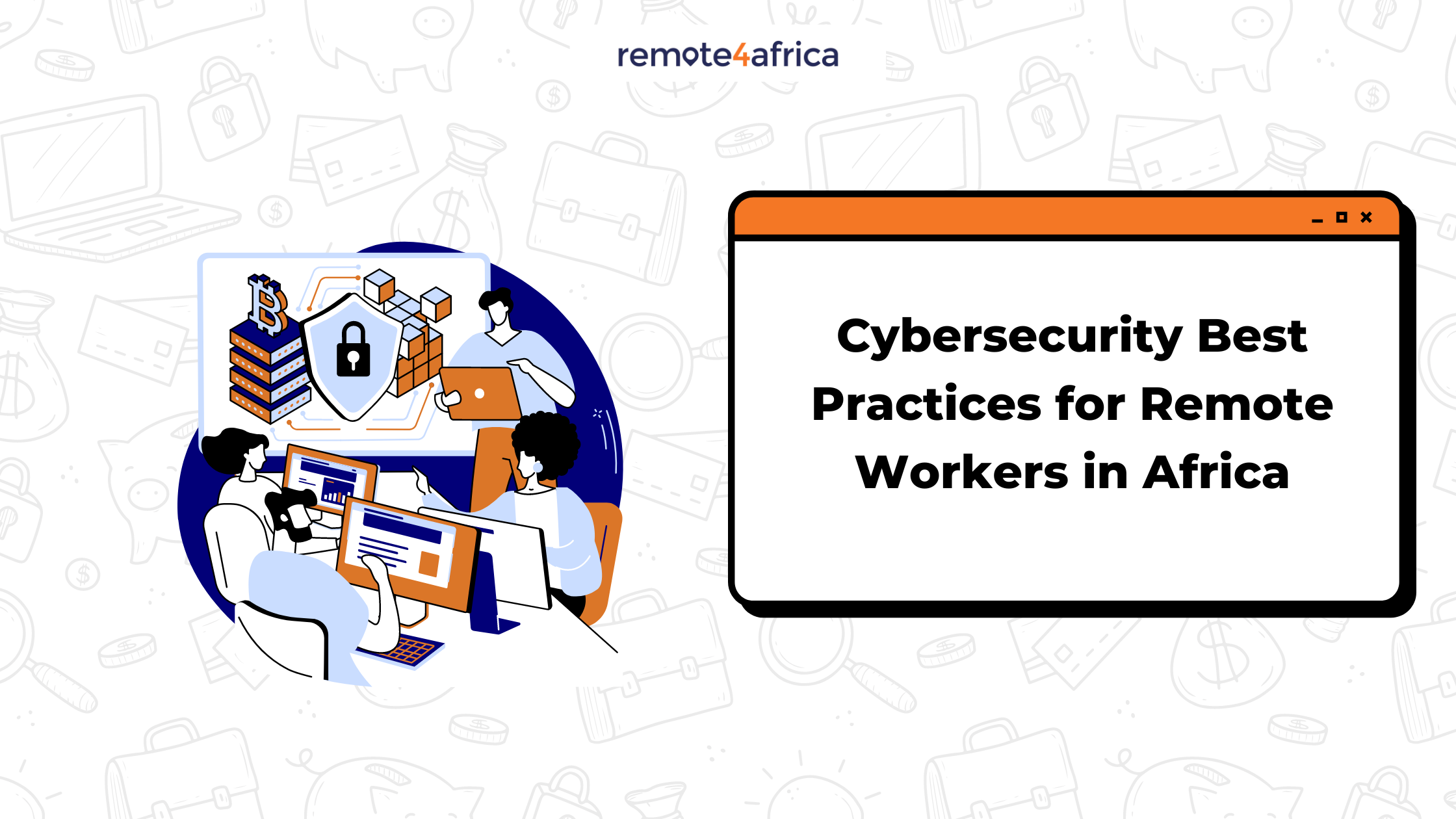Cybersecurity Best Practices for Remote Workers in Africa
It's essential to stay vigilant, adapt to emerging threats, and collaborate with employers to create a robust cybersecurity culture.

The rise of remote work has revolutionized the way we operate, offering flexibility and autonomy. However, with these benefits come new challenges, particularly in cybersecurity. Africa, with its growing digital landscape, is not immune to these risks. This article explores essential cybersecurity practices for remote workers in the region to safeguard their data and protect their employers' interests.
Best Practices for Remote Workers
Strong Password Hygiene
- Complexity: Create robust passwords combining uppercase and lowercase letters, numbers, and symbols. Avoid using easily guessable information like birthdays or names.
- Password Managers: Consider using a reliable password manager to securely store and generate complex passwords.
- Regular Updates: Change passwords periodically to reduce the risk of unauthorized access.
Enable Multi-Factor Authentication (MFA)
MFA adds an extra layer of security by requiring multiple forms of verification.
- Types of MFA: Common methods include SMS codes, authentication apps, and biometric verification.
- Importance: MFA significantly reduces the risk of unauthorized account access, even if passwords are compromised.
Keep Devices and Software Updated
Software updates often include security patches that address vulnerabilities.
- Regular Checks: Ensure operating systems, applications, and antivirus software are up-to-date.
- Automatic Updates: Enable automatic updates whenever possible to maintain the latest security protections.
Secure Network Connections
Public Wi-Fi networks are notoriously insecure.
- VPN Usage: Employ a Virtual Private Network (VPN) to encrypt your internet connection and protect sensitive data.
- Avoid Suspicious Networks: Be cautious about connecting to unfamiliar Wi-Fi hotspots.
- Strong Home Network Security: Secure your home network with a strong password, encryption, and regular firmware updates.
Phishing Awareness
Phishing attacks are designed to deceive users into revealing personal information.
- Educate Yourself: Learn to identify common phishing tactics like suspicious emails, fake websites, and urgent requests.
- Verify Links: Hover over links before clicking to check the actual destination.
- Be Wary of Attachments: Avoid opening attachments from unknown senders.
Data Backup and Protection
Data loss can be catastrophic for remote workers.
- Regular Backups: Implement a consistent backup strategy, including both local and cloud-based backups.
- Encryption: Encrypt sensitive data to prevent unauthorized access in case of data breaches.
- Data Minimization: Only store necessary data on your device to reduce the potential impact of a breach.
Continuous Security Education
The cybersecurity landscape is constantly evolving.
- Stay Informed: Regularly update your knowledge about emerging threats and best practices.
- Security Awareness Training: Participate in employer-provided security training programs.
- Report Suspicious Activity: Immediately report any suspicious emails, websites, or activities to your IT department.
Secure Communication Tools
Protect sensitive information during communication.
- End-to-End Encryption: Use messaging apps with strong encryption to secure conversations.
- Email Security: Be cautious about sharing sensitive information through email. Consider alternative methods for confidential data.
- Virtual Meeting Security: Use secure meeting platforms with strong privacy settings.
Physical Security
Protect your devices and work environment.
- Device Security: Use strong passwords, biometric authentication, and physical locks to safeguard your devices.
- Workspace Security: Be mindful of your surroundings when working remotely, especially in public places.
Conclusion
Cybersecurity is a shared responsibility. By following these best practices, remote workers in Africa can significantly reduce the risk of cyberattacks and protect their sensitive information. It's essential to stay vigilant, adapt to emerging threats, and collaborate with employers to create a robust cybersecurity culture. Remember, prevention is always better than cure.
